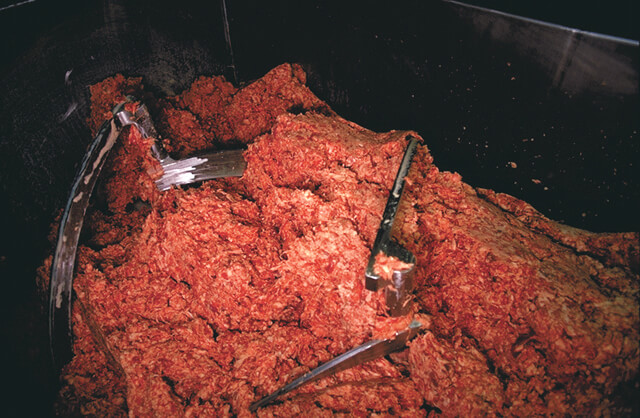 Nancy Kavazanjian
Nancy Kavazanjian
Topics: Livestock/Meat, Sustainability, Beef Cattle, USDA,
Low Carbon Beef Approved as a USDA Process Verified Program Service Provider
Low Carbon Beef, a cattle certification program that enables beef farmers and ranchers to earn premiums by reducing carbon emissions of their cattle operation, today announced it has secured approval as a USDA Process Verified Program (PVP) Service Provider from the USDA Agricultural Marketing Service (AMS). This approval marks the first USDA PVP for calculating the life cycle GHG emissions for beef production. The PVP will enable beef providers to differentiate and market beef that is raised wi
-
(0)
-
Bookmark
- Comments (0)
 John LaRose Jr.
John LaRose Jr.
Topics: Livestock/Meat, Agriculture US, Economics, Beef Cattle, Ag Australia/NZ, Coronavirus/COVID,
Turning beef's boom or bust on its head
Drought, bushfires forced a pivot and COVID fueled a phenomenon
-
(0)
-
Bookmark
- Comments (0)
 John LaRose Jr.
John LaRose Jr.
Topics: Precision AG , Livestock/Meat, Agriculture Global, Poultry, Economics, Beef Cattle, Genes /Genetics, Cellular Meat,
Will Lab-grown meat replace traditional meat soon?
Lab cultured meat: Are we going to a synthetic world?
-
(0)
-
Bookmark
- Comments (0)
 John LaRose Jr.
John LaRose Jr.
Topics: Soybeans, Livestock/Meat, Agriculture Global, Education U.S. MidWest, Animal Health,
Compounds from soybeans may improve animal health
Antimicrobial compounds that soybean plants produce when threatened by insects, diseases and even drought may help animals stay healthy, thereby reducing the need for antibiotics. “When a soybean is attacked by a pathogen, the plant produces phytochemicals called glyceollins as a defense mechanism,” explained assistant professor Bishnu Karki of South Dakota State University’s Department of Biology and Microbiology. Her research group has identified pathogens and lab-scale processes to trigger production of glyceollins and begun assessing soybean varieties to see which produce higher levels of the antimicrobial compounds. “Animals, such as pigs and poultry, already consume diets high in soybeans and could benefit from the phytochemical’s antimicrobial properties,” Karki said, pointing out scientists are studying the impact of glyceollins on human health, specifically in relation to cancer, inflammation and cardiovascular diseases. Karki’s research is supported by U.S. Department of Agriculture Hatch Act funding through the South Dakota Agricultural Experiment Station. Two master’s students and several undergraduates have also worked on the project. In the past, antibiotics were integrated into animal feed and water to help animals stay healthy and reach market weight efficiently. However, the FDA’s Veterinary Feed Directive, which seeks to decrease the development of antibiotic-resistance microorganisms, recently limited the use of antibiotics to specific health problems. Therefore, livestock producers are in need of natural alternatives, such as glyceollin-enriched soybeans, that can provide benefits similar to those of antibiotics. Doctoral candidate Ahmad Alhomodi, left, and assistant professor Bishnu Karki of the Department of Biology and Microbiology examine soybeans inoculated with two different edible fungi. The pathogens stress the beans so they produce glyceollins, which have antimicrobial properties.Producing glyceollins Under normal conditions, glyceollins are not present...
-
(0)
-
Bookmark
- Comments (0)
 Nancy Kavazanjian
Nancy Kavazanjian
Topics: Livestock/Meat, Agriculture US, Food/Nutrition,
Never thought about this before, interesting
Why Don't We Eat Turkey Eggs?
By all accounts they taste pretty good! So why don't we ever see them?
-
(1)
-
Bookmark
- Comments (0)
 John LaRose Jr.
John LaRose Jr.
Topics: Livestock/Meat, Agriculture Global, Economics, Sustainability, Beef Cattle, Animal Health,
-
(0)
-
Bookmark
- Comments (0)
 John LaRose Jr.
John LaRose Jr.
Topics: Commodities, Livestock/Meat, Agriculture US, Agriculture Global, Beef Cattle, Animal Welfare/Humane Treatment, Research, Fertilizer, Ag Australia/NZ, Commodity/Trade Groups, Animal Health,
-
(0)
-
Bookmark
- Comments (0)
 John LaRose Jr.
John LaRose Jr.
Topics: Livestock/Meat, Ag Podcast US, Economics, Beef Cattle, World Hunger,
Nebraska ranchers have a plan to contend with Big Beef and restore local economy
Ranchers in Nebraska are rebelling against the “Big Four” meat companies by planning their own beef processing plant. They’re seeking a transformation for themselves, the industry and western Nebraska.
-
(0)
-
Bookmark
- Comments (0)
-
(0)
-
Bookmark
- Comments (0)
 John LaRose Jr.
John LaRose Jr.
Topics: Livestock/Meat, Agriculture Global, Economics, Beef Cattle, Ag Asia / Pacific, Weather,
Yakutian Cattle Characteristics, Uses, Feeding, Breeding
The Yakutian cattle are a landrace cattle breed, which are bred in the north of the polar circle in the republic of Sakha. They belong to the East Asian Turano-Mongolian group of Taurine cattle.
-
(0)
-
Bookmark
- Comments (0)








